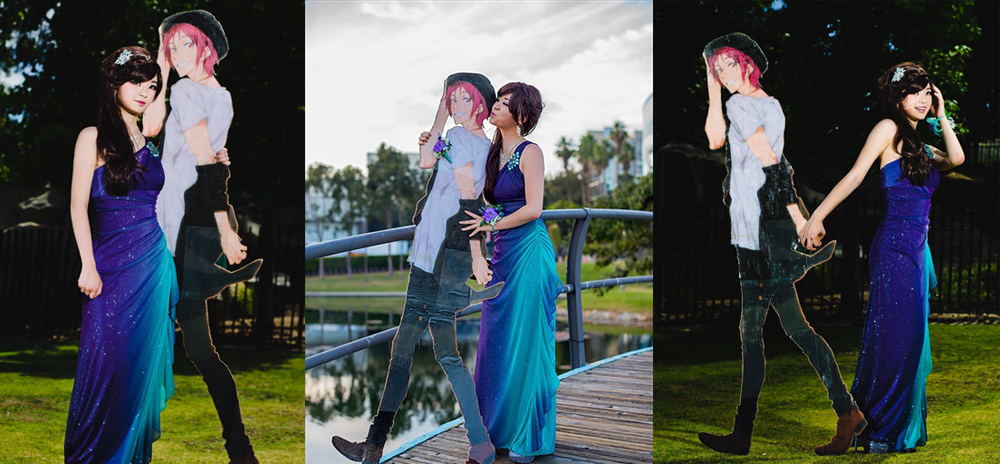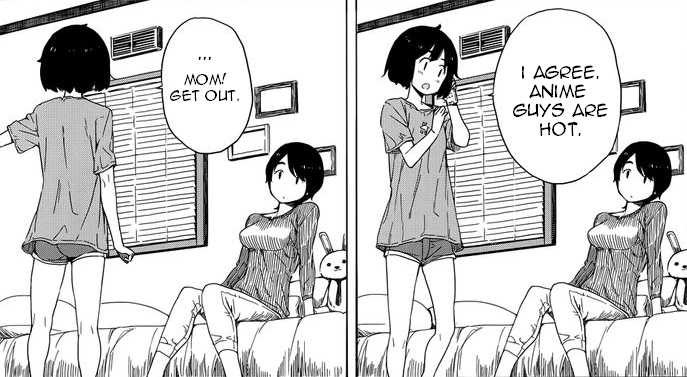In late July, anime recommendation engine Anime-Planet got a shiny new makeover. But while the site looks glossily professional now, I know better. Its creator, Kim, known online as sothis, is an anime fan who built this up during her free time.
I’m not an active user of either, but it seems to me that Anime-Planet and My Anime List are the two major contenders when it comes to organizing your watch list. Anime-Planet came first, but My Anime List got a lot of buzz after it was acquired by men’s media company CraveOnline.
Since Kim doesn’t have that kind of corporate backing, I thought it’d be cool to interview her and learn what it’s like running an anime resource hundreds of thousands of fans use—all while managing to live a somewhat normal life!
Otaku Journalist: When did you first get into anime?
Kim: Unlike many people who’ve been watching anime since they were kids, my journey began much later. Back in the olden days when I was 19, Pokémon was brand new and airing on TV. I happened to catch an episode or two and loved the cute monsters, but shortly after, a friend of mine suggested I watched Evangelion since I’ve always loved darker genres, and I got immediately hooked! I think my third anime was Fruits Basket, which was brand new at the time.
When and why did you first launch Anime-Planet?
People ask me this a lot and tend to be surprised by the answer. The site’s initial incarnation was around December of 2000 and started out on a whim. I used to hang out in a series of Direct Connect hubs called “Anime Planet” (the site’s namesake) and always wanted to take a more active role in the community there. I’d dabbled with HTML in the mid/late 90s during the Geocities era and decided I wanted to learn how to design databases, so I created a super basic V1 of Anime-Planet that consisted of nothing more than a user picture database, a forum, and a quotes page. Here’s a picture of it, on Facebook.
About 6 months later I had noticed a trend of people coming into chat and asking “I like [this anime], what else would I like?”, and wanting to expand my database skills further, I created the first iteration of the recommendation database. I never advertised the site outside of the hubs (which had a few hundred people at most), but word started to spread because a recommendation resource didn’t exist anywhere (and continued to not exist anywhere until one of our competitors launched their own rec system around 2007-2008). The site has grown ever since and now includes the personal lists, the multiple video integrations, etc.
Let’s get a little nerdy for a second. What kind of programming language, framework, and back end database does a site like this use? And how much time do you spend working on this stuff every week?
To answer the latter part of the question first, basically any time I’m not at my paying job, I’m working on Anime-Planet in some way. Whether coding it, training moderators, speccing out new features, fixing bugs, adding/writing site synopses, adding new videos, anything.
Spec-wise right now we run on 4 servers via DigitalOcean droplets. The site is a beast and continuously outgrows its resources, but I’m hopeful that on DigitalOcean’s infrastructure we won’t have to move again for awhile. The site’s core database is PostgreSQL and we maintain MySQL solely for the forum software, which we hope to integrate with the core site accounts soon. The site’s primary language is PHP and with V4’s launch we upgraded our CSS to leverage Pure. We also use LESS as of V4.
What are some exciting stats about Anime Planet? Like, how many people use it, how much traffic does it get, how many anime and characters are listed on it?
About 500,000 people access Anime-Planet every month from across the globe. We have around 6,500 anime, over 61,000 characters (with in-depth tagging and other categorizations) and a little over 15,000 manga. There’s also the 26,000+ legal anime episodes available to watch on the site.
That’s a lot of people! So you’re making a ton of money from Anime-Planet, right?
Definitely not :)
At Anime-Planet’s size and age, people assume it’s a corporate-run site with tons of resources and a huge staff. In actuality the site is run by a single admin (me) and a handful of volunteers, and I’ve never paid myself a dime. We have a small amount of ad units up on the site which help pay for the always-growing server costs, but that’s about it. Any dollar that comes into the site, whether it be through an ad impression or a user donation, goes straight back into the site in some way.
So if you’re not making money and it takes so much of your time and energy, why do you run Anime-Planet?
Anime-Planet was, and always has been, a labor of love. It started out as a random side project and has blossomed into something much larger, and is still a site run by an anime fan, for anime fans. My goal is to provide a friendly, welcoming place where anyone can watch, discuss and get recommendations for new anime and I’m grateful for each person who decides to join our community. I hope to continue building features for many years to come.
What is your advice to other fans who want to build something useful for the anime community?
Something I’ve learned over the years is that many projects succeed because they fill a gap. In Anime-Planet’s case, a recommendation database didn’t exist back then and everyone wanted one, and that ultimately led to its success. Nowadays there’s a lot of competition in the info database/recs arena, but there’s still plenty of room to innovate when it comes to anime and manga, or the community as a whole. Pick something you’re passionate about and run with it!
Read more interviews with anime fans on Otaku Journalist:







